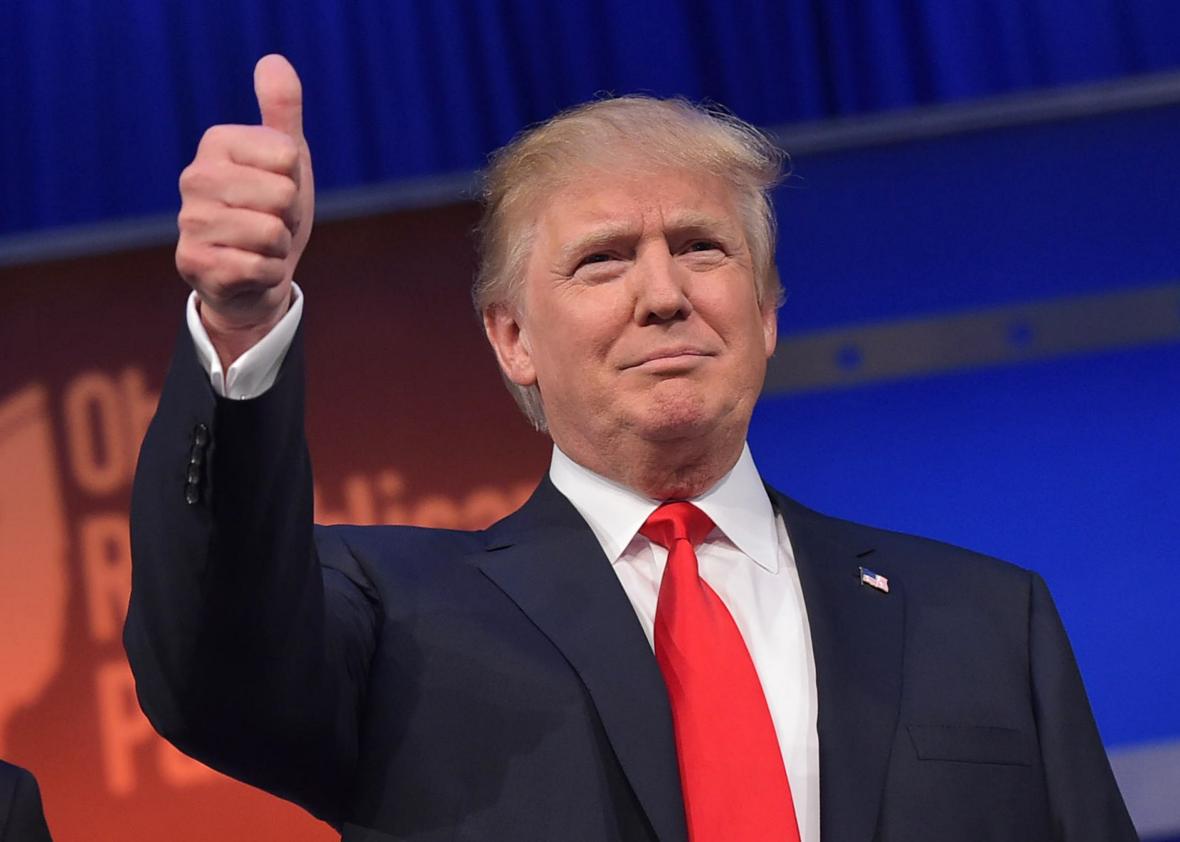
Voters in California, Massachusetts and Nevada approved recreational marijuana initiatives while an initiative in Maine was leading in the polls Wednesday morning. The 2016 election has proved to be the biggest electoral victory for marijuana reform since 2012. (Daron Taylor/The Washington Post)
In addition to the states above, local outlets in Maine are declaring victory for that state's legalization measure, but with 91 percent of precincts reporting just a few thousand votes separate the "Yes" and "No" columns.
A similar legalization measure in Arizona did not gain sufficient support to pass, with 52 percent of voters rejecting it.
On the medical side, voters in Florida, North Dakota and Arkansas have approved medical marijuana initiatives. Voters in in Montana also rolled back restrictions on an existing medical pot law.
Reformers were jubilant. “This represents a monumental victory for the marijuana reform movement,” said Ethan Nadelmann, executive director of the Drug Policy Alliance, in a statement. “With California’s leadership now, the end of marijuana prohibition nationally, and even internationally, is fast approaching.”
Five states have marijuana legalization initiatives on their ballots. Here's what they can learn from Washington, Colorado and Oregon, states where marijuana use has already been legalized. (Daron Taylor, Danielle Kunitz/The Washington Post)
In a recent interview with Bill Maher, President Obama said that passage of the legalization measures on Tuesday could make the current federal approach to the drug “untenable.”
Still, the likelihood of a Trump White House leaves a lot of uncertainty about the fate of marijuana measures in the next four years. Under Obama, federal authorities largely took a hands-off approach to state-level legalization efforts. But an incoming administration more skeptical of drug reform could easily reverse that approach.
“The prospect of Rudy Giuliani or Chris Christie as attorney general does not bode well,” the Drug Policy Alliance's Nadelmann said in an interview. “There are various ways in which a hostile White House could trip things up.”
Nadelmann pointed to the success of marijuana measures in the midst of an evident Republican wave as a sign that support for legalization now cuts deeply across party lines. And citing Trump's often contradictory statements on marijuana and drug use in the past, Nadelmann added that “Donald Trump personally could probably go any which way on this.”
With today's votes, legal marijuana is also making significant inroads in the Northeast. “Marijuana legalization has arrived on the East Coast,” said Tom Angell of the marijuana reform group Marijuana Majority in an email. “What Colorado and other states have already done is generating revenue, creating jobs and reducing crime, so it’s not surprising that voters in more places are eager to end prohibition.”
Opponents of legalization said they were disappointed by the outcomes. “We were outspent greatly in both California and Massachusetts, so this loss is disappointing, but not wholly unexpected,” said Kevin Sabet of the anti-legalization group Smart Approaches to Marijuana in a statement. “Despite having gained considerable ground in the last few weeks, the out-of-state interests determined to make money off of legalization put in too much money to overcome.”
Votes on medical marijuana in Florida and North Dakota were decisive. Florida's Amendment 2 passed with 71 percent support, according to the Associated Press. In North Dakota, the AP reports that 64 percent of voters approving of the medical marijuana measure.
Two years ago, a medical marijuana measure in Florida earned 58 percent of the vote, just shy of the 60 percent threshold needed for passage. Then, as now, opposition to the measure was fueled by multimillion-dollar donations from Sheldon Adelson, the Las Vegas casino magnate and GOP donor. In 2014 Adelson spent $5.5 million to defeat the measure. This year he's spent $1.5 million in Florida, and several million more to defeat recreational marijuana measures in other states.
“This is a major tipping point,” said Tom Angell of Florida's vote. “With Florida's decision, a majority of states in the U.S. now have laws allowing patients to find relief with medical marijuana, and these protections and programs are no longer concentrated in certain regions of the country like the West and Northeast.”
The victory in North Dakota is something of a surprise as no polling was done on the measure.
The Florida amendment has the potential to be one of the more permissive medical marijuana regimes in the nation. In addition to diseases like HIV, cancer and wording gives physicians considerable leeway in determining which conditions would meet those criteria.
PTSD, the measure also allows doctors to recommend medical pot for “other debilitating medical conditions of the same kind or class as or comparable to those enumerated, and for which a physician believes that the medical use of marijuana would likely outweigh the potential health risks for a patient.” While the 2014 measure allowed doctors to prescribe marijuana for any illness they believed it would be useful for, the new measure requires they show the illness is severe — though the
The medical pot measure in North Dakota allows doctors to recommend the drug for a number of severe medical conditions.
With the passage of Amendment 2, Florida will become the first Southern state to enact a robust medical marijuana regime. Medical marijuana is already legal in 25 other states and the District.
“Better late than never,” said Ethan Nadelmann, executive director of the drug reform group Drug Policy Alliance, in a statement. “Most states outside the South already have legal medical marijuana, but the overwhelming victory today in Florida is likely to accelerate the momentum for reform throughout the region.”

No comments:
Post a Comment